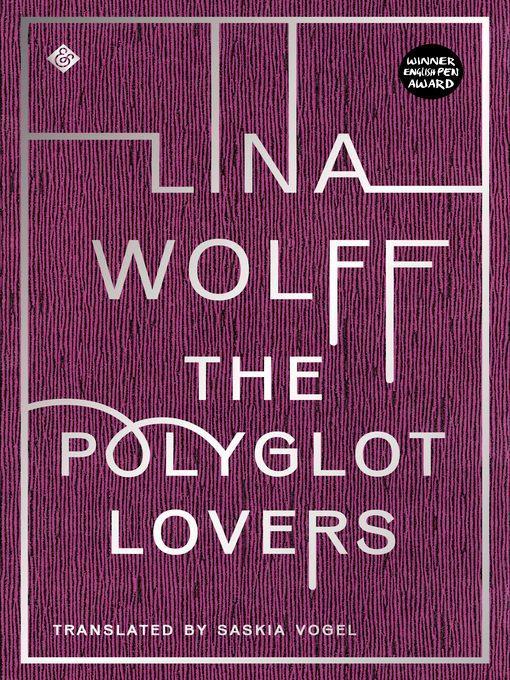
The Polyglot Lovers
کتاب های مرتبط
- اطلاعات
- نقد و بررسی
- دیدگاه کاربران
نقد و بررسی

February 1, 2019
A burned manuscript occasions these tales from three distinct characters."You've never seen anyone," Max's ex-wife tells him. "You've only seen yourself, and the women you've had have only been mirrors in which you saw your own reflection." This insight arrives near the end of Swedish author Wolff's (Bret Easton Ellis and the Other Dogs, 2016) second novel. It's a strange, disjointed book. After Max completes a manuscript (which bears the same title as Wolff's), he entrusts the only copy to literary critic Ruben, who has devoted his life to the study of Max's work. But that turns out to be a risky place; Ellinor, a woman who met Ruben online and then moved into his house, finds the manuscript and lights it on fire. Lest this all sound too straightforward, keep in mind that the plot is told backward and, as it were, from the side: The novel is split into three sections, narrated by three different characters in reverse chronological order. It begins with Ellinor's description of her own sexual history and continues in the second section with Max--a hateful character straight out of a Michel Houellebecq novel. In fact, Wolff seems to be parodying Houellebecq, or at least hanging him out to dry. But in an abrupt shift of mood and tone, the novel's third section leaves Stockholm for Italy, and this is where the novel is at its most vivid. Lucrezia narrates here: Granddaughter of Rome's very last marchesa, Lucrezia is responsible for her family's crumbling estate--the place, as it happens, where Max wrote his ill-fated manuscript. Lucrezia describes the circumstances in which he wrote it. Whether any of this comes together in the end is anyone's guess. Wolff's prose is whip-smart and deliciously cynical about Max, Michel Houellebecq, and men like them--but you still have to spend a lot of time in their company.Wolff's book is smart, funny, and sad in turns, but the point it's making--and it seems to be trying very hard to make a point--isn't always in view.
COPYRIGHT(2019) Kirkus Reviews, ALL RIGHTS RESERVED.

Starred review from February 18, 2019
The edifice of male genius is annihilated in this galvanizing novel from Wolff (Bret Easton Ellis and the Other Dogs). An online date brings Ellinor, whose lone passion is her village’s fight club, to the home of a Stockholm literary critic named Ruben. He shows her a manuscript that a novelist acquaintance, Max, asked him to read (there is only a single copy). Shortly afterward, they have sex, which turns violent, and Ellinor burns the manuscript as revenge. As a toxic symbiosis sets in between the unlikely pair, Wolff delves into the sordid affair that precipitated the manuscript’s creation. After sleeping with a suicidal receptionist, Max dismisses her as “too old, too inhibited, and too boring.” The woman curses him, prompting Max to seek redemption by authoring a new book. For inspiration, he heads to Italy and seduces the matriarch of a declining aristocratic family. His work is only interrupted by the arrival of the woman’s daughter, Claudia, who puts an end to the manipulative romance in exhilarating fashion. Wolff orchestrates her divergent plots into riveting harmony, but more striking is the audacity with which she reveals Max and Ruben’s reckless egoism. “I’m an autodidact in male devastation,” Claudia declares before sticking the final pin in Max’s inflated persona. Wolff’s novel proves the necessity of cultivating such a specialty. Firing on all cylinders from beginning to end, this story pulses with intellect and vitality unmatched by the literary barons it deposes.

























دیدگاه کاربران